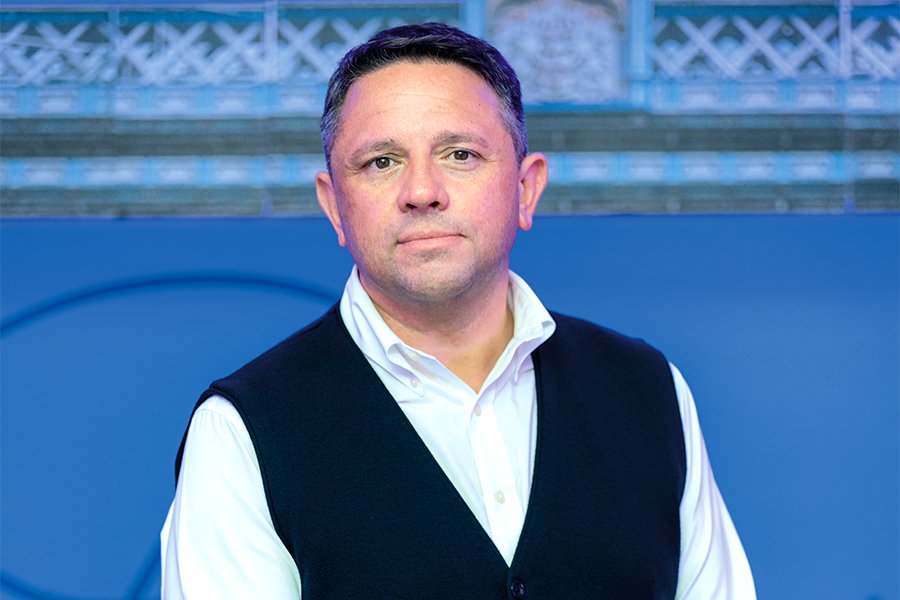
Nick Batey, General Manager, Marks & Spencer MENA, Al Futtaim Retail
Hybrid shopping is the primary buying method for 27% of consumers, found an IBM study, with 36% of Gen Z opting for hybrid over any other generation. While brick-and-mortar may not be the only place to shop at 72% of consumers still rely on stores to make their purchases. Yet, interestingly, 71% of consumers are keen to use self-checkout and 64% look for order online and pick-up in-store option.
Embracing hybrid or phygital is indeed the way forward for brands to have meaningful conversations with customers. For instance, Marks & Spencer MENA that’s part of Al Futtaim Retail in the region leverages the Al-Futtaim Blue loyalty programme through which the brand targets key customer segments and offers them personalised birthday offers when they visit stores.
In a Q&A with Nick Batey, General Manager, Marks & Spencer MENA, Al Futtaim Retail we discussed how the brand is digitally enabling experience centres (offline) and creating delightful and personalised experiences online.
Over the past few years what are some major digital transformation milestones for Marks & Spencer in the region and globally?
In recent years, we have strategically implemented various digital strategies to improve efficiency and enhance the overall customer experience as an omnichannel retailer. One of our pivotal moments of digital transformation was the launch of our first M&S Food Application in the UAE in 2020, giving consumers another option to shop their favourite food items that they would normally purchase in-store. Our goal was to reach our customers efficiently and safely during the pandemic, which proved to be a success with roll out to further markets and customers continuing to use thanks to its convenience and ease. Alongside this we also started working with several food delivery partners that we know many of our customers use, making it even easier for them to get M&S food delivered directly.
We’ve also launched many digital elements across stores including digital screens to showcase our latest collections and enhance the store environment. The in-store ‘click & collect’ service is also available when shopping online, making it easy to shop a wide range of clothing for the whole family with easy collection from their local store. We’ve also recently introduced self-checkout counters at selected stores – first across food followed by clothing to provide customers with a frictionless checkout experience.
Will the brand strategy lean towards creating smaller but experience-rich stores along with some flagships while expanding presence online?
We want to make sure we have stores in the right places for our customers. This means planning store catalogues that offer customers easy access to their M&S favourites everyday whilst being able to shop a wider range of collections online. While developing all our stores, we always look to create a complete 360-degree shopping experience offering exceptionally high-quality products across the entire family. Additionally, incorporating digital avenues help elevate the overall experience for our customers.
Is the brand leveraging technology solutions to strengthen the back end for inventory optimisation, supply chain agility while building a strong CRM to reach customers at their preferred time and platform?
Future-proofing our existing systems and processes is a priority for the business. To facilitate this, we use Radio Frequency Identification (RFID) technology in our clothing and home inventory to support our store teams in maintaining accurate stock and availability of products for our customers. We are currently in the process of rolling this technology out across all departments with the aim of becoming a full RFID retailer by 2024. Additionally, we plan to explore the latest tech-enabled solutions that will further optimise our inventory management and customer touchpoints enabling us to strengthen our supply chain.
On another note, Marks & Spencer has been undertaking several meaningful sustainability initiatives over the decades. Could you highlight some initiatives from the region?
M&S launched Plan A back in 2007 committed to supporting people, our planet and sourcing products with care. We’re always looking at how we keep this commitment. For example, rolling out the ‘Bags for Life’ initiative in our M&S Food halls, which is a durable shopping bag made with 100% recycled materials. Last year, we also introduced a charge for single use plastic bags in our food hall whilst encouraging customers to bring a reusable bag when shopping with us. In addition, in our UAE and Egypt stores we have launched a programme to recycle unwanted plastic hangers with plans to provide a similar solution across all Middle East locations. In 2023 we will focus on decreasing waste across our food supply chain and in turn help to lower our carbon footprint.
Looking ahead what are Marks & Spencer’s expansion plans in the GCC/MENA region and beyond?
While we cannot speculate our future operational roadmap, we are always looking for exciting opportunities to expand our footprint in the region. As we look into the future, we will develop our offerings across the region with a focus on omnichannel.